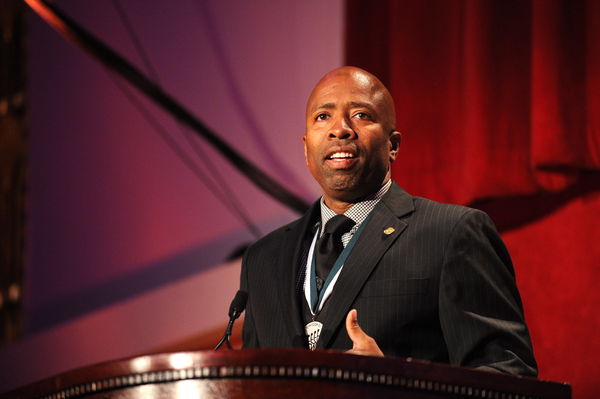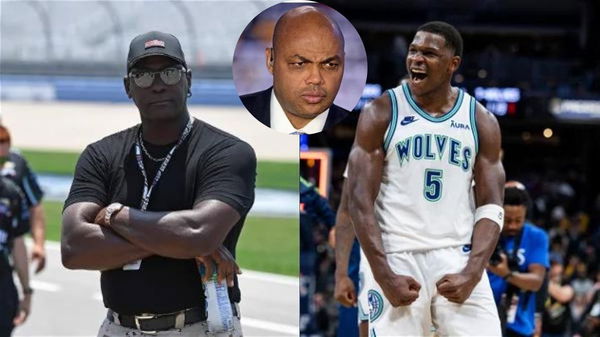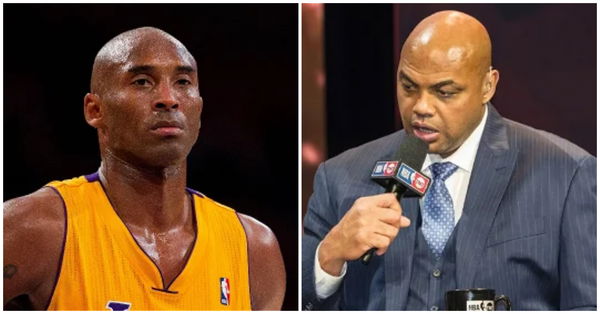Who Was Steve Kerr’s Father? Killed In Lebanon, Diving Deep Into American Hero Malcolm Kerr’s Legacy

Follow Us

USA Today via Reuters
Mar 7, 2024; San Francisco, California, USA; Golden State Warriors head coach Steve Kerr on the sideline during the fourth quarter against the Chicago Bulls at Chase Center. Mandatory Credit: Kelley L Cox-USA TODAY Sports
Steve Kerr, when you stare at his career, might be the most successful name in the league. He won 3 championships with Michael Jordan in ’96, ’97, and ’98. There onwards, he began playing under Gregg Popovich, adding 2 more chips to his illustrious resume (’99 and ’03). Ten years later, Kerr began orchestrating the most dominant modern-day NBA team, the Golden State Warriors (4-titles). Now, he rests as one of the top NBA coaches. But it is not just his basketball spectrum that amuses people, Kerr comes from a diverse background, off the court; one that involves his father’s illustrious legacy.
Kerr’s father, Malcolm H. Kerr, was a Lebanese-American academic with a specialization in the Middle East. Born in Beirut, Malcolm attended high school in the States before attending Princeton. However, he then returned to his birthplace to attend the American University of Beirut for his masters around 1955. His parents (Steve Kerr’s grandparents), Stanley and Elsa Kerr, were authoritative faculty members of the University at the time. Stanley was a biochemistry professor while Elsa was the dean of female students.
How did Malcolm H. Kerr meet Steve Kerr’s mother?
ADVERTISEMENT
Article continues below this ad
At the same time when Malcolm studied in Beirut, Ann Zwicker, an American, embarked on an overseas academic journey. Through a study-abroad program, she enrolled as a junior at AUB from Occidental College. Even before her classes began, the Armenian Catholic girls’ school asked her to teach English to their students, sparking an indirect connection with Malcolm Kerr. During those years of learning and teaching, the two met during a class on the Ottoman Empire, sparking their love story.
Together, the two devoted their lives to aiding relief for Armenian Genocide survivors and several other communities in need. Some of Malcolm’s most renowned work includes The Arab Cold War and the Islamic Reform, where he candidly addresses the Israeli-Arab conflict. He was also appointed as the Middle Eastern Studies Association’s president (1972) while having an award named in his honor. With that, soon, Ann and Malcolm Kerr’s academic/teaching journey took them through the Middle East to America, at UCLA.
Trending

Bucks Injury Report: Game 6 Return for Giannis Antetokounmpo and Damian Lillard Looks Plausible After Miraculous Win
May 01, 2024 06:21 AM EDT

Bronny in Deep Waters as $800,000 Suffering Forces LeBron James’ Son to End College Career With Major Declining Numbers
April 27, 2024 01:45 PM EDT

What Happened to Kenny Smith’s Legs? Unfolding the Sad Truth Behind TNT Host’s Dodgy Knees
April 22, 2024 08:05 PM EDT

“Kissing & Hugging Too Much”: Charles Barkley Claims Michael Jordan Had No Friends, Warns Anthony Edwards of Tough Future
April 30, 2024 07:00 AM EDT

“I’m So Disappointed in Kobe”: Charles Barkley’s Bold Take on Live TV Forced a Midnight Call With Frustrated Lakers Legend
May 02, 2024 02:13 AM EDT
Get instantly notified of the hottest NBA stories via Google! Click on Follow Us and Tap the Blue Star.

Follow Us
Malcolm’s roots restituted him back to AUB
Around 1982, Malcolm was selected to be the president of AUB, his alma mater. Due to the timing colliding with the Lebanese Civil War, Kerr was advised not to proceed with the offer, with many colleagues warning him. After all, David S. Dodge, AUB’s president before Malcolm was abducted from the campus by pro-Iranian Shiite Muslim Extremists, was held hostage in a prison near Tehran, until his release just one year later. Malcolm, along with the entire family, went over the pros and cons for months. However, his determination and desire to craft a better world through academics remained higher; especially because AUB stood as the hub for medical and science education. Moreover, it was his ultimate desire to lead the institution.
Given the dangers that came with his position, a bodyguard was initially assigned to Malcolm. However, Kerr thought that a university’s president should not walk around the campus with one, quickly dismissing the assistance. Regardless, Kerr knew the risks involved. “I bet there’s a 50-50 chance I’ll get bumped off early on,” he held his daughter (Steve Kerr’s sister) during the initial days of his presidency. He served as the president for 17 months. In fact, he took all the challenges that came along head-on, as it was reported by the Post that Kerr “personally stood down an Israeli armored personnel carrier that crashed through a campus gate.”
Unfortunately, in less than two years, Malcolm was tragically assassinated by the Islamic Jihad gunmen on January 18, 1984. Malcolm suffered two gunshots, at the back of his head in the hallway right outside his office. Steve Kerr was a teenager at the time, in the middle of his freshman year at the University of Arizona. “My phone rang in my dorm at 3 o’clock in the morning, so I knew something was up. He just said, ‘Steve, I have terrible news”, Kerr pointed back at the heartbreaking news after 36 years in an episode of Last Dance.
Steve Kerr still carries the pain of his father
“The truly civilized man is marked by empathy”, Malcolm Kerr quipped in one of his releases. And in many ways, Kerr echoes the sentiments and mindset of his father.
“Violent deaths get more attention, but death is death, and no matter how it happens, whether it’s cancer or an auto accident, the pain is still there,” Kerr said in 1993, after a Declaration of Principles on Interim Self-Government Arrangements (Oslo Accords). The havoc that cost his father’s life, alongside plenty of others, saw a cessation with a handshake at the White House.
Since then, Kerr rarely shares his sentiments about his father with the public. However, he radiates a personal responsibility to stand against gun-violence. On May 24, 2022, he resorted away from talking basketball in the pre-game interview, saying, “When are we going to do something?,” slamming the table in fury. “I am so tired of the excuse, I am sorry, I am tired of the moments of silence. Enough!,” he referenced the mass shooting at Robb Elementary School in Texas. Kerr’s 2-minute outrage, speaking his pain out with fierce rage, went viral, inviting the attention of the masses.
Months later, on January 17, Kerr made sure to discuss the concerns around gun violence during the Warriors’ championship visit to the White House. Apart from the formalities, he indulged in a 45-minute long conversation with President Biden’s top advisories: Keisha Lance Bottoms, Stefanie Feldman, and Julie Rodriguez.
Over the years, Kerr has also leaned his stance on several other controversial topics. Be it national-anthem protests, Middle East policy, and presidential politics. His mother believes that Kerr, through his boldness, brings light to his father’s ideologies. “In a strange way, Steve’s visibility in basketball has brought more recognition to his father and to AUB,” Ann claims.
ADVERTISEMENT
Article continues below this ad
Basketball has been Kerr’s recluse in coping with Malcolm’s death
Just two days after his father’s assassination, Steve Kerr decided to play through his pain. He came off the bench for his Arizona team, leading them to a victory over the rivals, Arizona State, 71-49. Moreover, he faced a cruel chant of “Hey, Kerr, where’s your dad?!” in his senior year. However, Kerr responded with a quick 20 first-half points with 6 three-pointers.
“Playing basketball took my thoughts away from what was going on”, Kerr claims the profound impact basketball has had on his life. Talking about Malcolm in The Last Dance, Steve and his mother claimed that the tragedy pushed Kerr to immerse himself in basketball. Kerr found a therapeutic connection with the court, all while learning lessons of patience and wisdom.
ADVERTISEMENT
Article continues below this ad
Moreover, even during his coaching years, Kerr cites his success to the time spent with his father. “He was an observer. He let me learn and experience,” Kerr highlighted his father’s approach towards him. “Looking back on it, I think my dad was a huge influence on me, on my coaching,” Kerr cites the unique lens he puts on his players, all while forging deeper player-coach relationships.

Having Lost His Father to Terrorism, Steve Kerr Recalls “Terrible Memories” From the 3 AM Phone Call at the ‘King Charles’ Premiere
Edited by:

Saumya Khanduja
